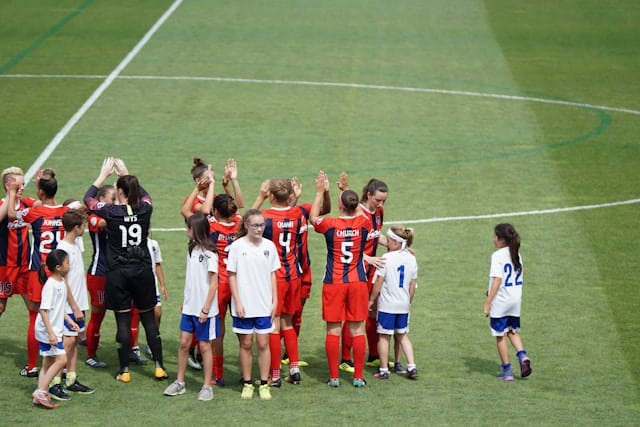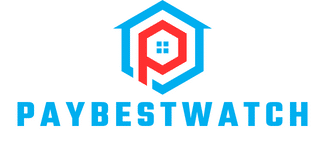What’s the Best Practice for Optimizing Sleep for Jet-Lagged Soccer Teams?

As football enthusiasts, you are no stranger to the clash of nations that occurs on the soccer pitch. With teams flying around the world to compete in various tournaments, the physical toll on athletes can be immense. One often overlooked, but vital aspect of this toll, is the impact of travel and jet lag on sleep quality. It’s a silent adversary that influences performance, health, and recovery of athletes. So what’s the best practice for managing sleep among jet-lagged soccer teams? Let’s delve further into this topic.
The Importance of Sleep for Athletes
Before we get into the strategies to optimize sleep, it’s important to understand why quality sleep is indispensable for athletes. Athletes are not just physical beings. Their bodies, like ours, are governed by circadian rhythms – the natural body clock that regulates sleep, hunger, and hormones.
Avez-vous vu cela : What’s the Role of Sports Medicine in Career Longevity for Professional Dancers?
Sleep deprivation can significantly impact an athlete’s performance. According to numerous scholarly research, insufficient sleep can lead to decreased reaction time, increased risk of injuries, and reduced endurance. In sports like soccer, where seconds can make the difference between victory and defeat, these effects can be devastating.
Moreover, chronic sleep deprivation can lead to health issues such as weakened immunity and stress-related disorders. This can seriously impair an athlete’s long-term career prospects. There’s a reason why sleep is often referred to as the "third pillar" of sports training, standing alongside diet and physical exercise.
A lire en complément : How do Acute Injury Protocols Differ Among Varied Contact Sports?
The Effects of Travel on Sleep and Performance
Travel, especially long-haul flights crossing multiple time zones, can wreak havoc on an athlete’s sleep schedule. The body’s circadian rhythm gets disrupted, leading to a condition commonly known as jet lag. Symptoms of jet lag include insomnia, daytime fatigue, difficulty concentrating, and gastrointestinal problems.
Jet lag can greatly affect an athlete’s performance. Studies have shown that the home advantage in sports may be partly due to the visiting team having to adjust to new time zones. Even Google’s AI-powered predictions for the 2018 World Cup were proven wrong on several occasions, with travel-induced fatigue speculated as a contributing factor.
Strategies for Managing Sleep Amidst Travel
Considering the significant impact of sleep on an athlete’s performance and health, it’s crucial for sports teams to have strategies in place to manage sleep amidst travel. Here are some best practices.
Adjusting to New Time Zones
It’s recommended that athletes start adjusting their sleep schedule to the new time zone a few days before travel. This can help reduce the effects of jet lag and allow the body time to adjust to the new schedule. Tools like light therapy and melatonin supplements can assist in resetting the body’s circadian rhythm.
Creating an Ideal Sleep Environment
The sleep environment significantly influences sleep quality. Teams should ensure that hotel rooms are quiet, dark, and at a comfortable temperature. Using eye masks and ear plugs can help block out disruptive light and noise. It may be useful to bring along familiar sleep aids from home, such as a favorite pillow or blanket.
Monitoring Sleep
Monitoring sleep can provide valuable insights into an athlete’s sleep patterns and help identify issues that need addressing. Wearables and sleep tracking apps can provide in-depth sleep data and personalized recommendations for improving sleep quality.
Incorporating Sleep into Training Regimes
Incorporating sleep into training regimes is a proactive approach to managing sleep. This means recognizing sleep as an essential part of recovery and performance optimization, rather than something that’s merely affected by travel.
Training schedules should be designed with sleep in mind. This includes scheduling training sessions at times that align with natural energy peaks, and allowing sufficient time for rest and recovery. It also means educating athletes about the importance of sleep and providing them with the tools and knowledge to manage their own sleep habits.
By acknowledging sleep as a key player in athletic performance, and implementing strategies to manage and optimize sleep, sports teams can help athletes achieve their full potential on the field, regardless of where in the world they’re playing.
The Relationship Between Sleep and Decision Making in Soccer
The ability to make split-second decisions on the field is a crucial aspect of soccer. A player’s decision-making capability is heavily influenced by their level of alertness, which in turn is significantly affected by their sleep quality. It’s not surprising, then, that sleep deprivation can have major consequences on their decision-making abilities.
One of the cognitive functions most drastically affected by lack of sleep is the ability to think quickly and react to changes in an instant, which is a fundamental skill in fast-paced, high-stakes games like soccer. Research studies indexed in Google Scholar have pointed out that soccer players who don’t get adequate sleep are more likely to make sub-optimal decisions during games, leading to fewer goal opportunities and more defensive errors.
In addition, sleep deprivation can also affect mood and temperament. Athletes who are not getting enough sleep may be more likely to exhibit poor sportsmanship, become easily frustrated, and lose focus during games. These emotional and psychological repercussions can further affect decision making on the field.
Finally, less sleep can also affect learning and memory. Soccer requires a high level of strategy, which involves remembering formations, plays, and techniques. Sleep is crucial for memory consolidation, and hence, a lack of it can hinder an athlete’s ability to remember and execute strategic moves.
Given these impacts, it’s clear that the link between sleep and decision-making in soccer is significant. Prioritizing sleep hygiene and ensuring that athletes get the sleep they need, especially in the face of jet lag, is therefore of paramount importance.
The Role of Sleep Extension in Enhancing Athletic Performance
Sleep extension refers to increasing the duration of sleep beyond one’s usual sleep patterns. It’s an approach that’s increasingly being used to combat sleep deprivation, particularly among elite athletes. By extending their sleep, athletes may be able to improve not just their physical performance, but also their cognitive function, decision making, and reaction times.
According to a study published in ‘Sleep’, a journal indexed in Med DOI, extended sleep over several weeks improved athletic performance, mood, and alertness in collegiate basketball players. These findings suggest that sleep extension can have significant benefits for athletes in terms of both performance and recovery.
For soccer teams dealing with jet lag, sleep extension can be a particularly useful strategy. Increasing sleep duration can help athletes to recover from travel fatigue, adjust to new time zones, and manage the symptoms of jet lag. It can also potentially compensate for lost sleep and reduce the effects of sleep deprivation.
Given these findings, it’s clear that sleep extension should be an integral part of every team’s strategy for managing sleep amidst travel. By ensuring that athletes get extended periods of high-quality sleep, teams can help to optimize their performance, regardless of the challenges posed by time zone changes.
Conclusion
Sleep is an essential aspect of every athlete’s training regime, and its significance cannot be understated. Whether it’s maximizing performance on the field, accelerating recovery after a game, or ensuring optimal decision-making capabilities, the role of sleep among athletes is central to their success.
For soccer teams traveling across time zones, managing sleep and combating the effects of jet lag is a complex challenge that requires careful planning and expert strategies. From adjusting to new time zones, creating an ideal sleep environment, monitoring sleep patterns, incorporating sleep into training regimes, focusing on decision-making abilities, to employing sleep extension strategies – every strategy can lead to significant improvements in performance and health.
As the adage goes, "You snooze, you lose." But in the world of international soccer, the opposite is true. Teams that prioritize sleep hygiene and ensure their athletes get adequate, high-quality sleep are the ones that stand to gain the most. Sleep is not just a necessity but an asset that can give teams the competitive edge they need to win, irrespective of where they are playing.
